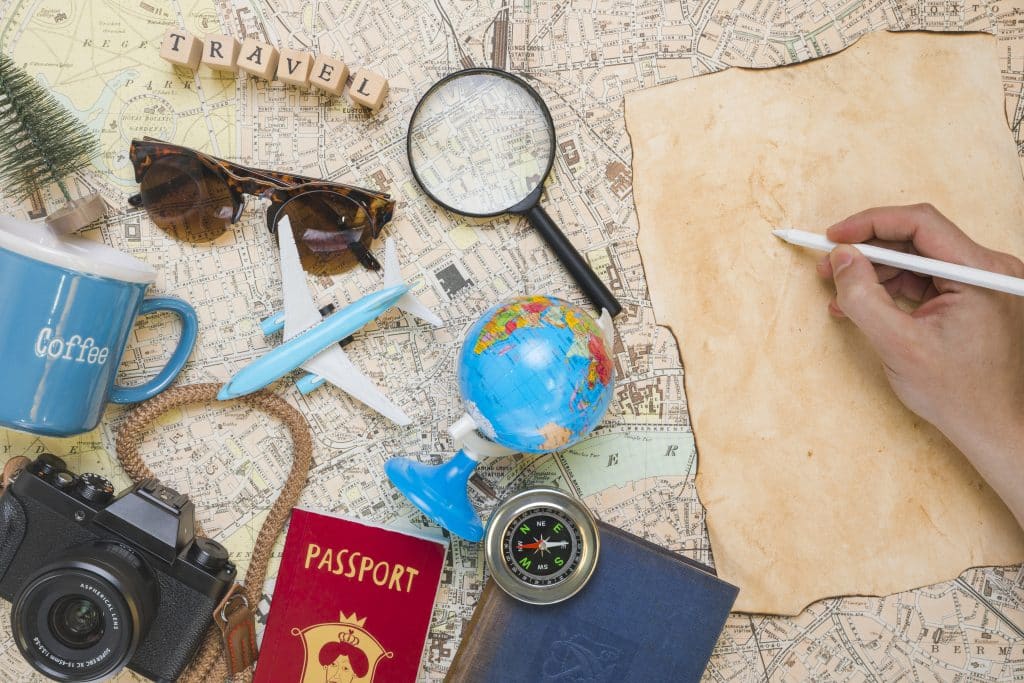Planning Travel Around Cultural Experiences
Henry King August 14, 2025
In 2025, travelers are looking for more than just typical sightseeing experiences—they want to immerse themselves in the local culture. Rather than simply visiting popular landmarks, they seek opportunities to connect with the people, history, and traditions of a destination. Cultural experiences are now at the forefront of travel planning, from cooking classes to festival tours.
This shift is reshaping how we approach travel, emphasizing cultural exploration and genuine engagement over traditional tourism. In this article, we’ll explore how to plan travel around cultural experiences in 2025, highlighting the growing trend of cultural tourism, how to find meaningful experiences, and the benefits of connecting with the culture of the places you visit.

The Rise of Cultural Tourism
Over the past few years, cultural tourism has grown rapidly. According to the UN World Tourism Organization (UNWTO), travelers increasingly seek authentic experiences that provide insight into the local culture, customs, and traditions. This shift is partly fueled by the rise of social media, where travelers share their unique cultural experiences, inspiring others to seek out similar opportunities.
Cultural tourism isn’t just about visiting museums or attending a traditional dance performance. It encompasses a wide range of activities that connect you to the heritage, art, language, and cuisine of a destination. These experiences often involve direct interaction with locals, whether it’s through guided tours by indigenous experts, participating in religious festivals, or learning traditional crafts.
Why Cultural Experiences Are Becoming Central to Travel
- Authenticity: Travelers are increasingly seeking more authentic, personal experiences rather than the typical tourist activities.
- Learning: Cultural tourism allows visitors to learn new skills, from cooking local dishes to mastering traditional crafts, enhancing the value of the trip.
- Connection: Engaging with local communities fosters greater understanding and empathy, helping bridge cultural gaps and promote mutual respect.
Practical Tip: Before planning your next trip, think about what aspects of the culture interest you most. Are you drawn to the local art scene? Would you love to learn how to cook traditional dishes? Identifying these interests can guide your travel choices.
1. Choosing Destinations with Rich Cultural Heritage
The first step in planning a cultural trip is selecting the right destination. Some cities and regions are known for their rich cultural traditions, making them ideal spots for cultural immersion.
Top Destinations for Cultural Exploration
- Kyoto, Japan: Known for its temples, traditional tea ceremonies, and Geisha culture, Kyoto offers a deep dive into Japan’s cultural heritage.
- Marrakech, Morocco: The bustling souks, rich history, and vibrant festivals make Marrakech an ideal place for exploring Moroccan culture.
- Florence, Italy: Known for its Renaissance art, museums, and culinary delights, Florence offers an unparalleled look at Italy’s artistic and historical achievements.
- Cusco, Peru: The heart of the Inca Empire, Cusco offers access to ancient ruins, traditional Quechua culture, and breathtaking Andean landscapes.
Practical Tip: Research destinations that align with your personal interests. If you love art and architecture, consider cities like Florence or Barcelona. If you’re more interested in indigenous cultures, places like Cusco or Oaxaca might be perfect for you.
Key Takeaway: When choosing your next destination, look for places that offer deep cultural roots and a variety of experiences that align with your personal interests.
2. Immersive Experiences: Engaging with Local Traditions
Once you’ve chosen your destination, it’s time to plan the experiences that will allow you to fully engage with the local culture. Immersive experiences are all about interaction—whether it’s learning a new skill, attending a festival, or connecting with the local community.
Popular Immersive Cultural Experiences
- Cooking Classes: Learn how to prepare traditional dishes from local chefs. In places like Thailand, Italy, and Mexico, cooking classes offer a fun, hands-on way to connect with the culture.
- Craft Workshops: Many destinations offer opportunities to learn traditional crafts, such as pottery in Morocco or weaving in Guatemala. These workshops are a great way to gain insight into local artistry.
- Festivals and Celebrations: Participating in a local festival is a great way to experience culture up close. Think of attending the Diwali festival in India or Carnival in Brazil.
- Homestays and Local Tours: Stay with local families to get a first-hand experience of their way of life. Alternatively, book local tours led by experts in history or culture.
Practical Tip: Look for travel agencies or local organizations that offer culturally immersive tours. These often provide unique experiences such as meeting artisans, participating in food tastings, or attending private performances.
Key Takeaway: Immersive experiences allow you to engage directly with the culture, offering a deeper understanding of the destination and its people.
3. Sustainable Cultural Travel: Respecting Local Communities
As cultural tourism grows, so does the need for responsible travel. Sustainable cultural travel is about ensuring that your visit benefits the local community without causing harm to their traditions or environment. It’s important to choose experiences that prioritize ethical practices and support local economies.
How to Be a Responsible Cultural Traveler
- Support Local Artisans: Buy handmade goods directly from artisans to ensure they receive fair compensation. Avoid mass-produced items sold in tourist shops.
- Respect Local Customs: Educate yourself on local customs and traditions before your trip. For example, in some cultures, certain attire or behavior might be required for visiting sacred sites.
- Conserve the Environment: Choose eco-friendly accommodations and sustainable travel options. Opt for walking or biking tours to reduce your carbon footprint.
Practical Tip: Before traveling, research the local customs, environmental practices, and ethical tourism guidelines. Websites like Sustainable Travel International and Responsible Travel offer valuable insights.
Key Takeaway: Sustainable cultural travel supports local economies, preserves traditions, and minimizes your environmental impact.
4. Technology and Apps to Enhance Cultural Travel
Technology plays a big role in helping travelers access cultural experiences in real-time. Apps and websites allow you to connect with locals, find unique cultural events, and even learn the basics of a new language before your trip.
Useful Apps for Cultural Travel
- Culture Trip: This app offers a wealth of information about local customs, food, events, and attractions, allowing you to plan culturally rich itineraries.
- TripAdvisor: While often used for general reviews, TripAdvisor also features cultural activity suggestions, local experiences, and authentic travel tips from other users.
- Google Translate: Bridging the language barrier is one of the biggest challenges in cultural travel, and Google Translate can help you navigate conversations with locals.
- Local Events Apps: Apps like Eventbrite and Meetup can help you find local cultural events, workshops, and festivals happening during your stay.
Practical Tip: Download a language-learning app like Duolingo or Babbel to learn key phrases before your trip. This helps enhance your cultural connection and makes interactions with locals more rewarding.
Key Takeaway: Technology makes cultural travel more accessible, providing tools to enhance your experience and connect with the local culture.
5. Planning for Cultural Immersion in 2025
As travel continues to evolve in 2025, the trend of cultural immersion is expected to expand even further. With a growing focus on authenticity, sustainability, and community engagement, the next wave of travelers will prioritize experiences that go beyond conventional tourism.
How to Stay Ahead of Cultural Travel Trends
- Follow Local Influencers and Experts: Social media platforms, such as Instagram and YouTube, are full of local influencers and content creators who can guide you to authentic cultural experiences.
- Look for Smaller, Undiscovered Destinations: Instead of following the typical tourist trail, consider lesser-known destinations that offer rich cultural experiences without the crowds.
- Embrace Slow Travel: Slow travel is all about taking your time to truly experience a destination. This approach allows you to immerse yourself in local culture and form deeper connections with the community.
Practical Tip: Instead of booking a short vacation, plan a longer stay in one location to fully immerse yourself in the local culture and traditions.
Key Takeaway: The future of cultural travel is about authenticity, engagement, and sustainability. By staying informed and adaptable, you can ensure that your travel experiences are enriching and meaningful.
Conclusion
As we move further into 2025, planning travel around cultural experiences offers more than just a way to pass time—it’s an opportunity to learn, grow, and form connections with the world around us. Whether it’s learning to cook a new dish, participating in a traditional ceremony, or supporting local artisans, cultural travel allows us to experience the world in a richer, more meaningful way.
By embracing cultural immersion, respecting local traditions, and utilizing modern technology, you can enhance your travel experiences and create lasting memories. In this new era of conscious travel, cultural exploration is more than just a trend—it’s a transformative way to engage with the world.
Reference
- UN World Tourism Organization (UNWTO)- https://www.unwto.org/cultural-tourism
- Sustainable Travel International- https://sustainabletravel.org/
- National Geographic – Cultural Travel- https://www.nationalgeographic.com







